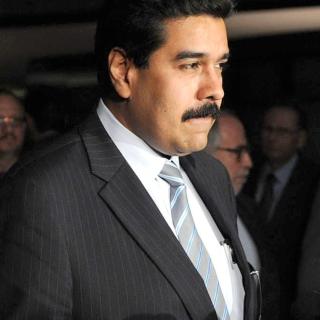Advertisement
The situation in Gaza has been horrifying. Provoked by Hamas attack and killing of Israelis at a concert two years ago, Israel has launched a devasting attack on
Palestinians throughout Gaza and even encouraged actively and passively settler violence in the West Bank. More than 65,000 Palestinians have been killed and millions were dislocated in a way many experts and observers call genocide and see as war crimes committed by Israel. One headline described the reaction among both Palestinians and Israelis as “elation” in greeting the ceasefire and the coming release of the remaining prisoners. No matter the rationalizations on all sides about the justification and necessity of war, the people love peace, hopefully making it impossible for the ceasefire to not be permanent.
Fewer governments, including the one currently in the United States, seem to be advocates for peace, despite the news from Gaza. Trump, while covetous of a Nobel Peace
Prize, seems oblivious of the paradoxes of renaming the Defense Department as the War Department, unilaterally invoking war powers domestically with attacks on Democratic cities, and downing boats, allegedly containing drug smugglers in the Caribbean without arresting them and bringing them to trial. Sorry, Charlie, these are not the actions of a peacemaker.
It was hard not to talk about this on Wade’s World with Thant Myint-U, a historian and diplomat based in Cambridge, England, who has recently written a book on life and work of his grandfather, U-Thant, who was Secretary-General of the United Nations for a decade in the 60-70s. The book coincides with the 80 th anniversary of the UN, which recently convened in New York City and included a rambling, not necessarily peaceful speech from Trump. My conversation with Thant coincided with an announcement that the UN, largely because of reduced contributions from the United States, was preparing to recall 10,000 troops that are assigned as peacekeeping forces in various countries facing conflict around the world. We kept scratching our heads over the prospects for the UN and its future. The US reportedly is dispatching 200 troops to Gaza to help on the ceasefire, but you don’t read about the UN being part of the peacekeeping plan in Gaza. As Thant pointed out, historically, the UN was founded in the wake of WWII by the victorious war powers as a council to stop war.
Whether it is mission drift or the old and new Cold War between great powers on the Security Council, the UN does many, many things that are invaluable, but securing and winning the peace seems past its power now. To hear Thant Myint-U talk about his grandfather’s role in the Cuban Missile Crisis, that has now been revealed through deeper review of his papers and opening of UN archives, along with the Congo, and so many other flashpoints of that era, is a reminder of how much things have changed. The notion of a UN chief having good relations with the top leaders of both the US and Russia seems mythical, rather than real.
The failures to achieve peace and the horrors of war have consequences that endure and shadow the future past the tabulation of the death counts on all sides. The Times reported that in new polls for the first time, American Jews, long Israel’s strongest domestic backers, have turned sharply critical of Prime Minister Netanyahu and his right-wing government over the Gaza conflict. A majority believe Israel has committed war crimes killing tens of thousands of civilians and restricting food aid, and four in 10 believe it is guilty of genocide, a new Washington Post survey found. Israel has seen empathy and support for Palestinians around the world as not pro-peace and justice, but oppositional. Netanyahu and his far-right war council may have lost a generation and have critically isolated the country in the wake of this catastrophic conflict.
Could a robust United Nations have made a difference? Possibly not, but if not the UN, then what can force peace to the be the dominant global policy? It’s no longer the United States, if it ever was. Something has to fill this vacuum or the future will be soaked in blood.



